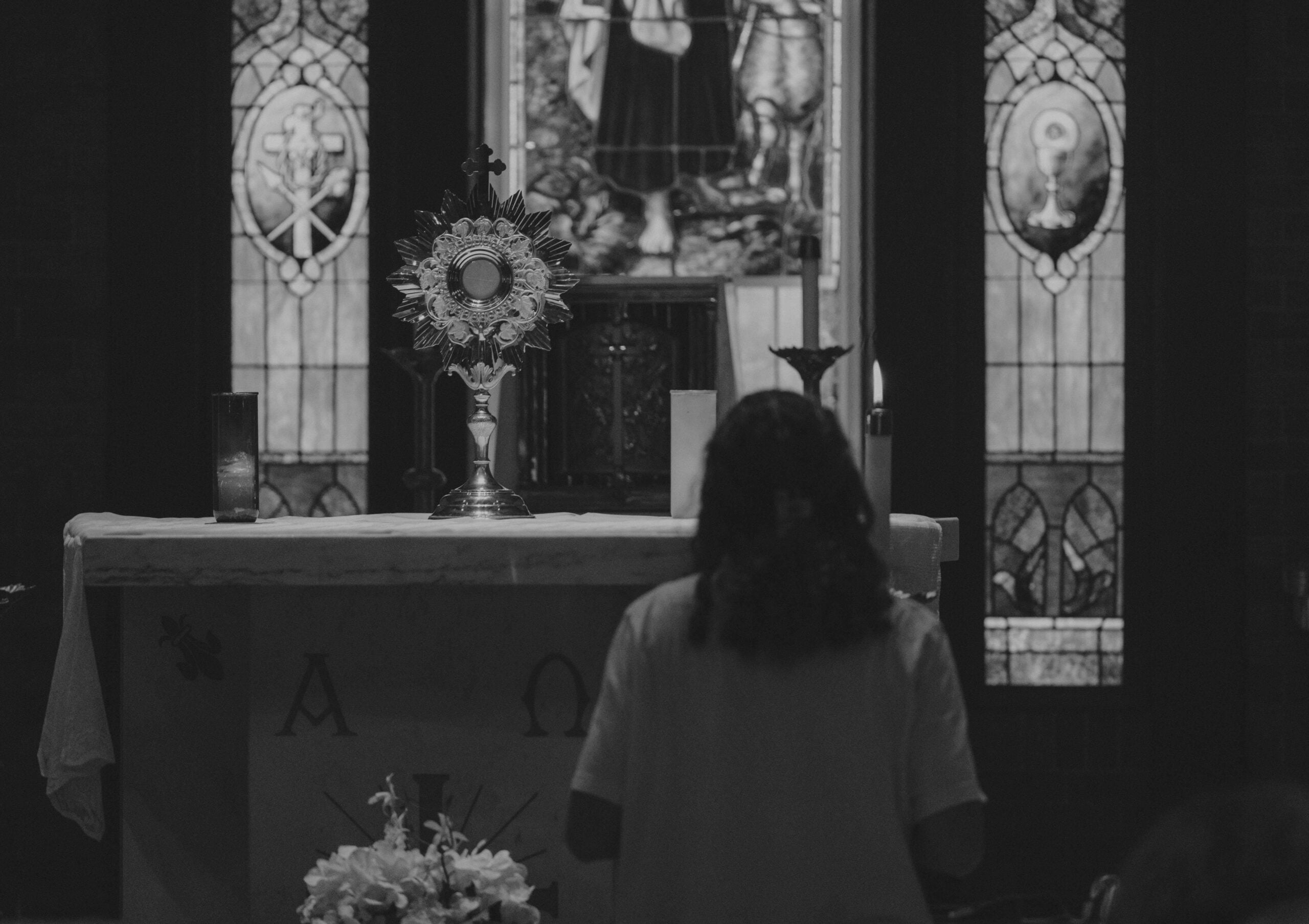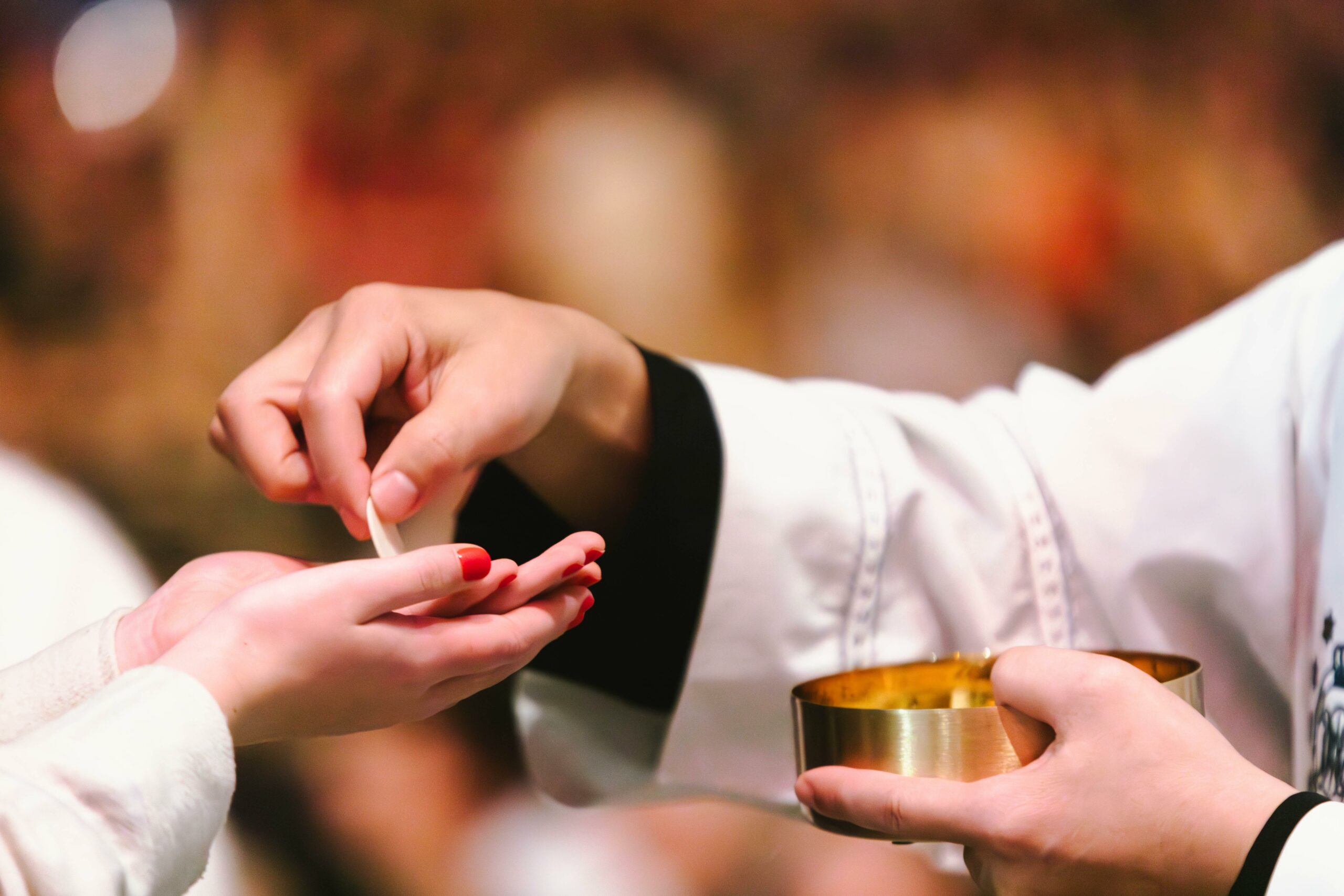Are you ready to delve deep into the profound mysteries of the Eucharist? Prepare to embark on a fascinating journey exploring the origins, symbolism, and contemporary interpretations of this sacred sacrament. As we peel back the layers of history and theology, we will uncover the transformative power of the Eucharist and gain a greater understanding of its significance within the Christian faith. It’s time to unlock the secrets and unveil the beauty of this timeless ritual. So, fasten your seatbelts, and let’s embark on this enlightening expedition together.

Information about the Eucharist
The Eucharist, also known as Holy Communion or the Lord’s Supper, is a central ritual in Christian worship that holds deep significance for believers. Let’s delve into the origins, symbolism, and contemporary interpretations surrounding this sacred sacrament.
The Origin of the Eucharist and its Meaning:
The Eucharist finds its roots in the Last Supper, an event where Jesus shared a final meal with his disciples before his crucifixion. During this meal, Jesus took bread, blessed it, broke it, and gave it to his disciples, saying, “Take, eat; this is my body.” He also took a cup of wine, gave thanks, and said, “Drink from it, all of you; for this is my blood of the covenant, which is poured out for many for the forgiveness of sins.” These actions and words became the foundation for the Eucharistic ritual.
The term “Eucharist” itself is derived from the Greek word meaning “thanksgiving.” It represents the gratitude and reverence the Christian community expresses toward the sacrificial death of Jesus Christ.
The Eucharist as a Sacrament:
The Eucharist holds a special place in Christian worship as a sacrament. It is believed that, through the power of the Holy Spirit and the priest’s consecration, the bread and wine actually become the body and blood of Jesus Christ. This transformation, known as transubstantiation, is a profound theological concept that underscores the real presence of Christ in the Eucharist.
The Symbolism and Significance of the Eucharist:
The Eucharist is a symbolic representation of the central elements of the Christian faith. The bread and wine symbolize the body and blood of Jesus, reminding believers of his sacrifice and redemption. Consuming the consecrated elements is seen as a means of uniting with Christ and receiving spiritual nourishment. This sacrament is considered central to the spiritual life of believers, offering them a tangible experience of Christ’s presence and grace.
Different Names, Different Interpretations:
While the Eucharist is commonly referred to as Holy Communion or the Lord’s Supper, various Christian denominations may have different names for this sacrament. It is important to note that the practice and theology of the Eucharist have evolved over time within different traditions. Catholic, Orthodox, Anglican, Lutheran, and some Protestant denominations attach different theological interpretations to the nature and significance of the Eucharist. For some, it is a commemoration of Christ’s sacrifice, while for others, it is a mystical union with Christ.
Celebration and Practices:
The Eucharist is celebrated during Christian worship services, typically accompanied by prayers, hymns, and readings from Scripture. The ritual involves the consecration of the bread and wine, which is then distributed to the congregation. The act of receiving the Eucharist is considered a sacred moment of communion with Christ and fellow believers.
Wide-Reaching Impact:
The Eucharist has a unifying effect within the Christian community. It symbolizes the believers’ communion not only with Christ but also with one another. This sacrament serves as a reminder of the church’s unity, irrespective of denominational differences.
Conclusion:
The Eucharist holds a central place in Christian worship and spirituality. Its origins in the Last Supper, symbolism of Christ’s sacrifice, and real presence in the consecrated elements make it a deeply significant sacrament. Whether you approach it as a memorial, a mystical union, or a divine transformation, the Eucharist bears witness to the enduring power and timeless relevance of Christian faith.
To learn more about the Eucharist and deepen your understanding, you can explore reputable sources such as Britannica, learnreligions, BBC, Episcopal Church, and Wikipedia.
The Eucharist is a deeply fascinating sacrament with a rich history and symbolism. If you’re curious to learn more about this sacred ritual and its significance, click here for incredible facts about the Eucharist. You’ll discover hidden meanings behind the elements, the origins of the ceremony, and the profound teachings associated with it. Prepare to be amazed as you delve into the world of the Eucharist and unravel its mysteries. So go ahead, satisfy your curiosity and click on this link: facts about the eucharist.
Information about the Eucharist is a profound exploration of the religious significance of the Eucharist, a practice deeply revered by believers worldwide. This ancient sacrament holds great importance within various religious traditions, with its roots dating back centuries. The Eucharist serves as a symbolic representation of Jesus’ sacrifice and his presence within the communion. To understand the deeper meaning behind this ritual, click here to delve into the religious significance of the Eucharist.
Within the realm of theology, it is often challenging to distill complex ideas into easily understood concepts. That is until you discover the article, information about the Eucharist. Unraveling intricate theological principles, this resource masters the art of simplification. Dive into the realm of profound ideas without feeling overwhelmed. To decipher complex theological concepts, click here.
In the midst of exploring the multifaceted world of the Eucharist, it is essential to grasp its religious significance fully. Tucked away in the depths of the article about the Eucharist, you will uncover insights that enhance your understanding and appreciation for this sacred practice. Discover the depths of the Eucharist’s religious significance by clicking here.
A theological discourse can often leave us bewildered, grappling to comprehend the intricacies of complex concepts. However, fear not, for the article about the Eucharist is here to your rescue. This remarkable resource manages to distill complexities into digestible portions, enabling a deeper understanding of theological intricacies. To unlock the gateway to comprehending and navigating complex theological concepts, click here.
The Significance of the Eucharist: A Deep Dive into Catholic Beliefs
[youtube v=”c7vfyfkIiSc”]
Origins of the Eucharist
The Eucharist, also known as Holy Communion or the Lord’s Supper, is a central ritual in Christian worship. Its roots can be traced back to the Last Supper, a significant event in Christianity. During that meal, Jesus shared bread and wine with his disciples, symbolizing his impending sacrifice and the establishment of a new covenant.
“The Eucharist finds its origins in the Last Supper where Jesus shared bread and wine with his disciples.”
The Meaning of the Term “Eucharist”
The term “Eucharist” is derived from the Greek word “eucharistein,” which means “thanksgiving.” In Catholicism, this word represents the profound gratitude for Jesus’ sacrifice on the cross. When we participate in the Eucharist, we express our thanks to the Lord for all His blessings. It serves as a reminder of the good gifts bestowed upon us by God.
“The term ‘Eucharist’ means ‘thanksgiving’ and represents gratitude for Jesus’ sacrifice.”
The Real Presence of Jesus
In Catholic belief, the Eucharist holds a profound and unique significance. During the celebration of Mass, the bread and wine become the body and blood of Jesus Christ through a process known as transubstantiation. This means that the substance of the bread and wine is transformed, while their appearances remain unchanged.
“As Catholics, we believe that the bread and the wine truly become the body and blood of Christ.”
Union with Christ and the Church
Partaking in the Eucharist is not merely a symbolic act but rather an act of communion with Christ. Consuming the consecrated elements signifies a spiritual union with Jesus, emphasizing the intimate bond between the faithful and their Savior. Furthermore, it represents unity within the Church, as believers come together in shared worship and devotion.
“When we receive the body and blood of Christ, we dedicate our lives to that communion that we get to share with God and with His church.”
A Symbol of Unity
While the Eucharist holds special significance in Catholicism, variations in beliefs and practices surrounding it exist among different Christian denominations. Some may have different names for this ritual, while others may interpret its meaning in distinct ways. However, regardless of these variations, the underlying concept of unity with Christ and fellow believers remains a common thread.
“The Eucharist is a unifying symbol within the Christian community, representing communion with Christ and fellow believers.”
Through the celebration of the Eucharist, Catholics express their gratitude for the sacrifice of Jesus and affirm their union with Christ and the Church. It is a sacred sacrament that serves as a focal point of worship, fostering a sense of unity and spiritual communion among believers. Whether differing in interpretation or practice, the Eucharist ultimately stands as a profound testament to the central message of Christianity – love, sacrifice, and fellowship.
FAQ
Q: What is the Eucharist?
A: The Eucharist is a Christian sacrament and ritual that commemorates Jesus’ Last Supper with his disciples.
Q: What does the term “Eucharist” mean?
A: The term “Eucharist” means “thanksgiving” in Greek.
Q: Who instituted the Eucharist?
A: Jesus instituted the Eucharist during his final meal with his disciples before his arrest and crucifixion.
Q: What do Christians believe about the Eucharist?
A: Christians believe that in the Eucharist, bread and wine become the actual Body and Blood of Jesus Christ through the power of the Holy Spirit and the priest.
Q: How is the Eucharist celebrated?
A: The Eucharist is celebrated in a ritualized manner during Christian worship services, often accompanied by prayers, hymns, and readings from Scripture.
Q: How can I learn more about the Eucharist?
A: Additional resources for learning more about the Eucharist include reputable sources such as Britannica, learnreligions, BBC, Episcopal Church, and Wikipedia.
- China II Review: Delicious Food & Speedy Service - April 17, 2025
- Understand Virginia’s Flag: History & Debate - April 17, 2025
- Explore Long Island’s Map: Unique Regions & Insights - April 17, 2025
















